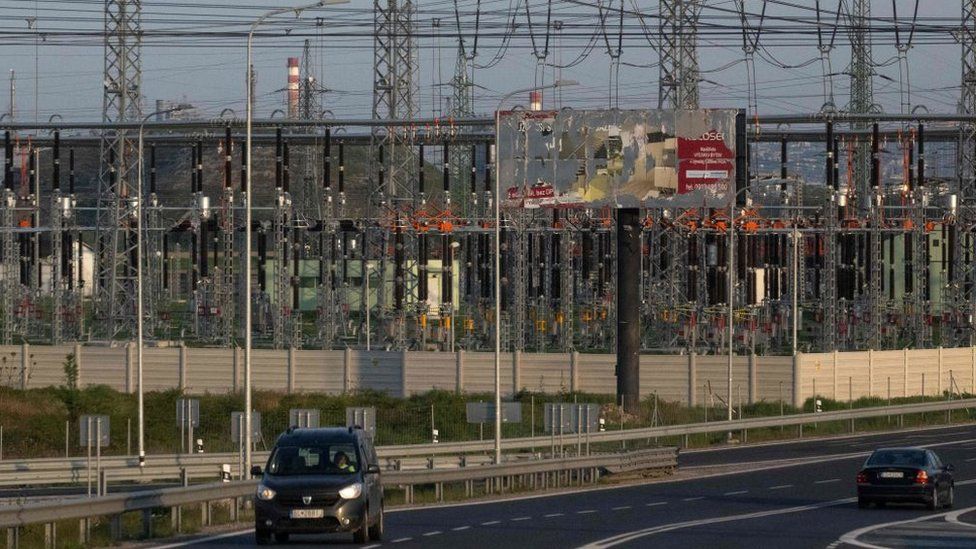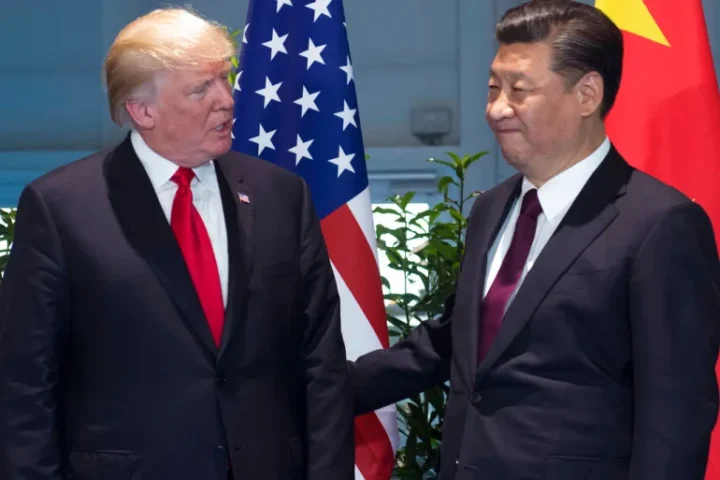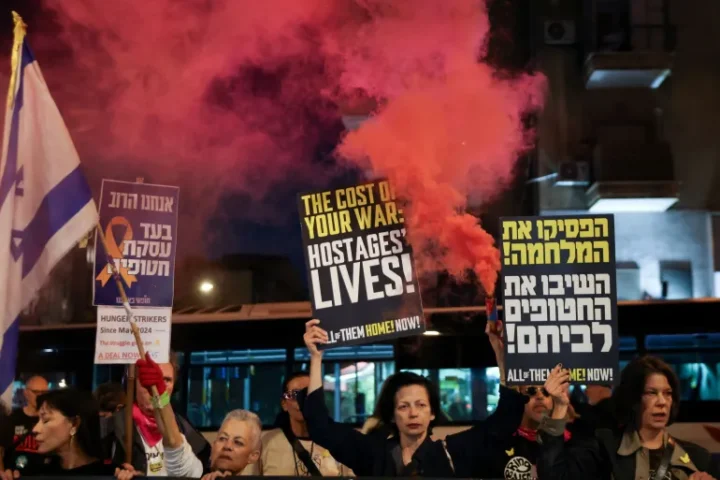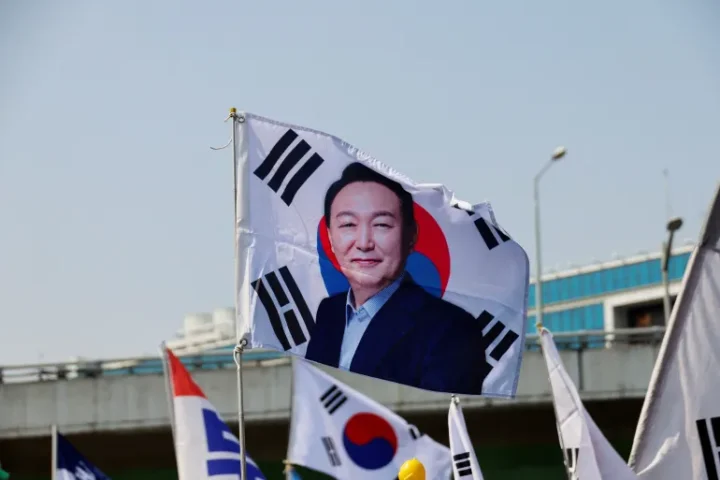The EU has proposed some of its toughest measures yet against Russia, including a total ban on oil imports and sanctions on war crimes suspects.
European Commission President Ursula von der Leyen said the package was aimed at maximising pressure on Russia while minimising damage to Europe.
Russian crude oil would be phased out within six months, she said.
Military officers involved in suspected war crimes in Bucha and Mariupol would also face new sanctions.
“This sends another important signal to all perpetrators of the Kremlin’s war: We know who you are, and you will be held accountable,” Ms von der Leyen told the European Parliament on Wednesday.
The EU has been focusing for weeks on how to wean itself off Russian oil and gas. It has already pledged to reduce gas imports by two-thirds by the end of 2022 and now plans to phase out crude oil over six months and refined products by the end of 2022.
“We will make sure that we phase out Russian oil in an orderly fashion,” the Commission president said.
The package first has to be approved by EU ambassadors and is set to be signed off in the next few days.
Slovakia and Hungary, which currently rely on Russian oil, would be given an extra year to find alternative suppliers. Hungarian Foreign Minister Peter Szijjarto said Budapest could not support the package in its current form, while Slovakia’s economy minister said his country wanted a three-year transition period.
Czech Prime Minister Petr Fiala said he would also seek a two-to-three year exemption to tackle problems with pipeline capacity.

Last year, Russia supplied the EU with a quarter of its oil imports, and Germany was the biggest buyer. However, Germany has dramatically reduced its reliance on Russian oil imports, down from 35% to 12%. The UK, which is no longer in the EU, is already phasing out Russian oil, which accounts for 8% of its imports.
Targeting Russian banks and TV
Shortly after Russia invaded Ukraine, the EU suspended broadcasts of two networks, RT and Sputnik, that broadcast in English, German and Spanish. It has now targeted three of the biggest Russian state-run broadcasters, by cable, satellite, smartphone or online.
“We have identified these TV channels as mouthpieces that amplify Putin’s lies and propaganda aggressively,” Ms von der Leyen said. Although the three networks were not named, they are thought to include the widely watched Russian-language Rossiya and RTR Planeta channels of state-owned operator VGTRK.
A ban would also be imposed on providing European services to Russian companies through accountants, lawyers and spin-doctors, she said.
Earlier sanctions have already hit Russian banks but the biggest bank of all, Sberbank, has been left off the list because it was considered necessary for paying for Russian gas. Sberbank makes up over a third of Russia’s banking sector and is now set to be removed from the SWIFT global financial messaging system. Two other Russian banks are included in the proposals.
Previous sanctions packages have also targeted a number of individuals linked to the Kremlin and the invasion, and unconfirmed reports suggested the head of the Russian Orthodox Church, Patriarch Kirill, would be on the latest list, along with the family of Kremlin spokesman Dmitry Peskov.






